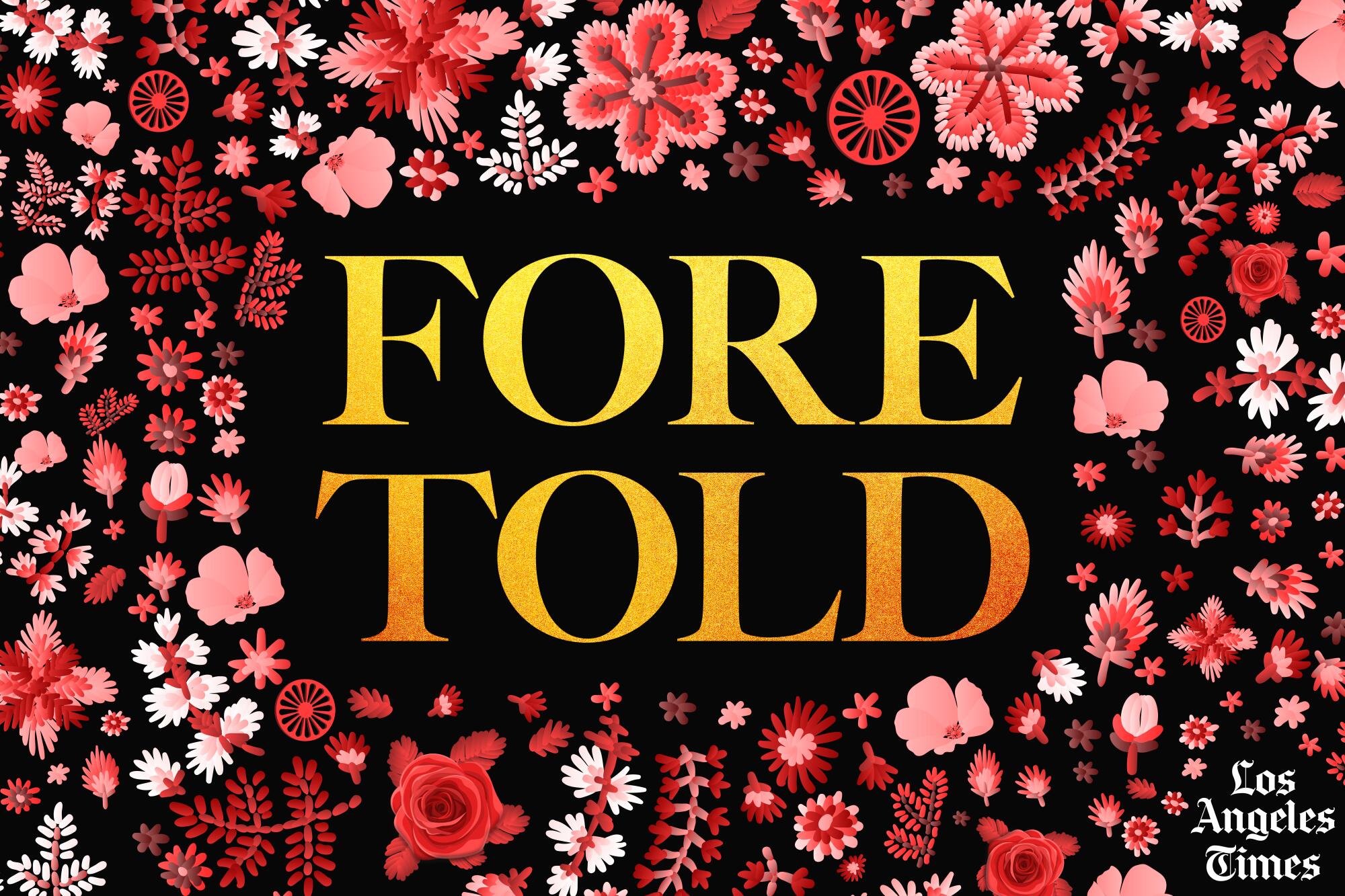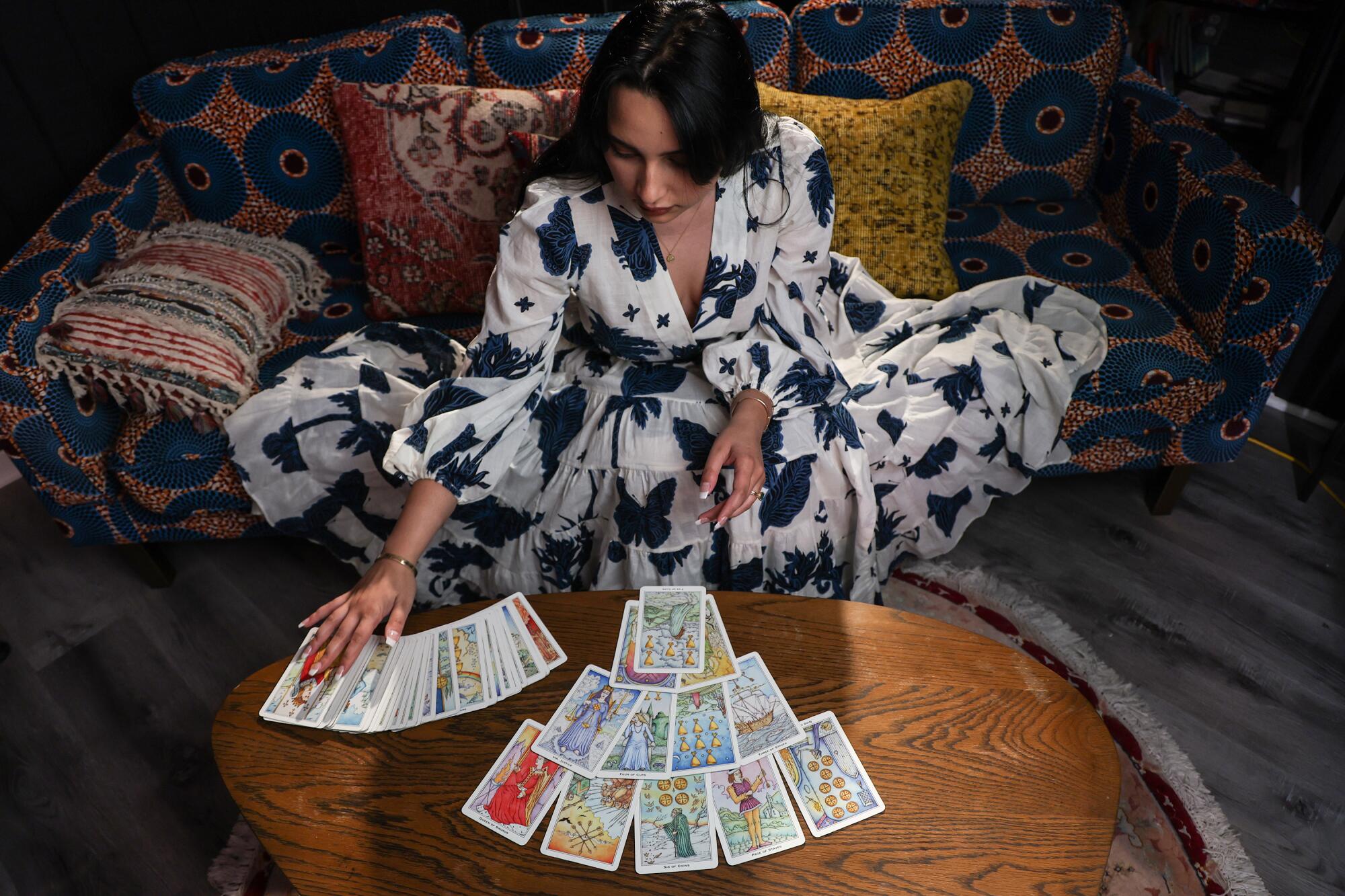
- Share via
Follow 'Foretold' wherever you get your podcasts:
Episode 3: “Business Arrangements.” Before Paulina was born, her future seemed predestined: She’d marry her relative and close family friend, Bobby. They were a match written in the stars. And their wedding only augured more good things to come. Or so she thought.
Read the episode transcript.
See all episodes and extras.

Four years ago, I was in a relationship with a wonderful man whom everyone in my family adored, including me. He was a handsome Frenchman with a very good job and a kind heart. His goals were to have a successful career, get married, have babies and live a full and happy life bouncing between San Francisco and Paris.
If you had drawn a blueprint for exactly the kind of guy my mother would dream of me marrying, Jules would have been it and then some. So when he proposed to me at a seaside resort in my hometown in front of my whole family, it was a no-brainer. I said yes.
I shouldn’t have.
See, getting married is a big event for anyone, but in many cultures, weddings are loaded with life-affirming significance for girls especially. We are taught to orient a huge chunk of our existence around becoming a bride. We’re told that it’s the most special day of our lives. The day a woman is pronounced a wife.
A lot of American women receive this message. In my experience, the message was mostly subtext — it largely filtered in through movies and “Sex and the City” episodes, not from my relatives.
In Paulina Stevens’ Romani American family, the message was much louder and clearer.

Paulina says that during her whole childhood, she was told who she was destined to marry. Not just that she would get married in general, but that her future husband had already been selected — by her parents and his parents, before she was even born.
Right then and there, they said, “If you’re having a girl, my son is going to get married to your daughter.”
— Paulina Stevens in “Foretold”
They weren’t betrothed as babies or forced to marry. But their parents had a lot of hope. During her most formative years, Paulina was told time and time again that she would someday become Bobby’s wife. She would get married, move in with Bobby’s family and give birth to the next generation of Stevens-Stevenses. (Yes, they had the same last name even before they were married.)
Everything seemed to have fallen into place: Paulina and Bobby grew up together. They were almost the same age. They got along well. Their parents were close friends. They were from the same Romani subgroup. And, of course, there was the joyous memory of the day Paulina’s mother discovered her pregnancy and the parents imagined their babies’ future.
“Growing up, I heard this story hundreds of times from my dad and John Paul. My mom tells the story.… I always heard it.”
— Paulina Stevens in “Foretold”
So it’s not hard to understand why Paulina accepted her predetermined path. When she was 12, she and Bobby decided to lean into the inevitable. When she was 16, they officially got engaged.
By then, I imagine that on some level, it felt like there was no going back. How could you change your mind when both families are all in on the elaborate parties to celebrate you finally giving in to fate?
I’ve been there. I was much older than Paulina when I accepted Jules’ proposal, but her experience feels familiar.
For me, the first sign of doubt crystallized when I found myself avoiding announcing my engagement on social media. He had proposed with a huge diamond ring, one that had been in his family for generations — the kind of ring you’d want to flaunt on Instagram but keep off your hand in public because it’s too valuable to risk being stolen.
This reticence is very out of character for me. I love flexing on the ‘gram. And here I was, with all the makings of a picture-perfect life ahead of me. I was engaged to a man I loved, who could set me up for life and who still has all the hallmarks of an amazing father and life partner. Why wasn’t I taking every opportunity to bask in that glow?
I shoved my feelings down and concentrated on planning the wedding (in a castle in the south of France, by the way.) As the weeks went by, I started to get more troubled that planning this big-budget European wedding wasn’t as exciting as I thought it would be. Because I love parties. But I shrugged it off as just wedding jitters.
Then the pandemic hit. Jules was temporarily living in Paris for his job, and I was based in New York for mine. The time apart and the sudden onset of the end times made everything come into focus for me. Even though on paper, Jules and I were meant to be, I knew that by marrying him, I’d be doing something that went against my whole being. I felt it. I just couldn’t explain why.
I broke off the engagement, choking on everyone’s surprise and my own guilt about causing him so much pain. It wasn’t easy to do. To this day, I still feel like I let everyone down.
So when I think about Paulina, who must have felt an even more intense pressure to go along, I can deeply relate.
It really came down to needing to make my parents happy. And I was like, “I guess I’ll just do it. Whatever. F— it. Let me just, I’ll just get married.”
— Paulina Stevens in “Foretold”
It’s incredibly hard to go against what everyone you love wants for you, and even more so if you have a strong obligation to marry within your community and literally create the lifeblood of your culture’s future.
So as you listen to this episode, consider what you might have done if you were Paulina. Think about the social and cultural pressures on her — and on everyone around her. It’s not so easy to forge your own destiny when you’re carrying the weight of expectation.
— Jazmín Aguilera
More to Read
About 'Foretold'
Theme music by seven-string guitarist and composer Vadim Kolpakov and composer Alex PGSV. Additional original music by Vadim Kolpakov and Alex PGSV, as well as Alex Higgins. Fact checking by Helen Li, Lauren Raab, Asal Ehsanipour and Faith E. Pinho. Additional research by Scott Wilson.
Thanks to Shani Hilton, Kevin Merida, Brandon Sides, Dylan Harris, Carrie Shemanski and Kayla Bell.



